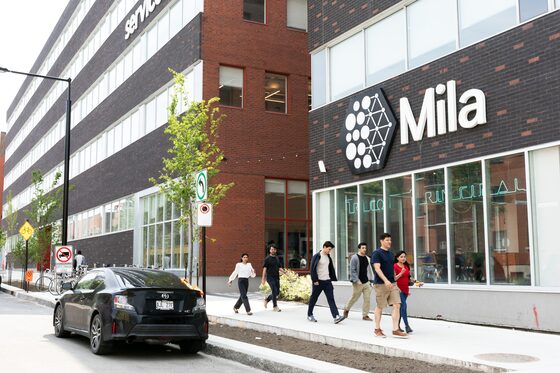Indigenous AI Initiative: Mila Institute’s Pioneering Program Bridges Tech Gaps
Montreal’s renowned Mila Institute has launched a groundbreaking initiative aimed at bringing Indigenous communities into the rapidly evolving artificial intelligence sector. The program represents a significant step toward addressing the underrepresentation of Indigenous peoples in technology fields while creating pathways for communities to harness AI for their unique needs.
The initiative, developed in collaboration with Indigenous leaders and technologists, will provide specialized training and mentorship opportunities for participants from First Nations, Métis, and Inuit communities across Quebec and beyond. What makes this program particularly innovative is its commitment to respecting and incorporating Indigenous knowledge systems alongside cutting-edge AI education.
“This isn’t just about teaching coding,” explains Marie Laviolette, Indigenous outreach coordinator at Mila. “It’s about creating space where Indigenous perspectives can shape how AI develops and ensuring these powerful tools serve Indigenous communities in ways that respect their values and sovereignty.”
The program will offer flexible learning options, including remote participation for those in northern communities, and covers everything from basic programming skills to advanced machine learning concepts. Importantly, participants will work on projects directly relevant to their communities’ needs.
These projects might include language preservation applications, environmental monitoring systems, or tools to support traditional knowledge transmission between generations. By focusing on real-world applications that matter to Indigenous communities, the program aims to make technology more accessible and relevant.
Montreal’s position as an AI hub makes it the perfect launching point for such an initiative. The city hosts not only Mila, one of the world’s leading AI research centers, but also a growing ecosystem of tech companies and startups eager to diversify their talent pools.
Statistics highlight the urgent need for such programs. Indigenous peoples remain significantly underrepresented in STEM fields, with less than 2% working in computing and information technology sectors despite making up nearly 5% of Canada’s population.
“We’re not just filling a diversity quota,” says Samuel Awashish, a Cree tech entrepreneur involved in designing the curriculum. “Indigenous ways of thinking—our holistic approaches, our relationship-centered worldviews—have much to contribute to how AI develops. We need to be at the table.”
The initiative has secured funding from both public and private sources, including Innovation Canada and several Montreal-based tech companies committed to improving equity in the industry. This financial support ensures the program can offer scholarships and remove financial barriers for participants.
Beyond technical training, the program addresses broader issues like creating culturally safe spaces in tech workplaces and connecting participants with Indigenous mentors already working in the field. This comprehensive approach recognizes that representation challenges go beyond skills gaps.
“What excites me most is watching participants realize they belong in these spaces,” says Jennifer Cardinal, an Anishinaabe data scientist who will serve as one of the program’s instructors. “There’s something powerful about seeing someone who looks like you, who shares your background, excelling in a field you’ve been told isn’t for you.”
The initiative comes at a critical moment as AI technologies rapidly transform industries and societies. Without diverse perspectives guiding development, these powerful tools risk perpetuating existing inequalities or causing unintended harms to marginalized communities.
Local Indigenous leaders have expressed enthusiasm about the program’s potential. “Our communities have always been innovative and adaptive,” notes Elder Martha Kanatakta, who serves on the program’s advisory council. “This initiative recognizes that Indigenous peoples should be creators of technology, not just consumers of it.”
The first cohort will begin training this fall, with applications opening next month. Program organizers expect strong interest and are already planning to expand capacity in subsequent years based on community feedback and outcomes.
For Montreal, the initiative represents another step in the city’s evolution as a tech hub that prioritizes ethical innovation and inclusion. It follows other successful programs targeting underrepresented groups in technology, though this is the first specifically focused on Indigenous participation in AI development.
As artificial intelligence continues reshaping our world, initiatives like Mila’s Indigenous AI program ensure that this technological revolution includes and benefits all communities. In bridging traditional knowledge with cutting-edge technology, the program may help create AI systems that are not only more inclusive but also more thoughtful and responsible.
Those interested in learning more about the program or applying can contact Mila’s Indigenous outreach office or visit their website for details on application deadlines and eligibility requirements.







